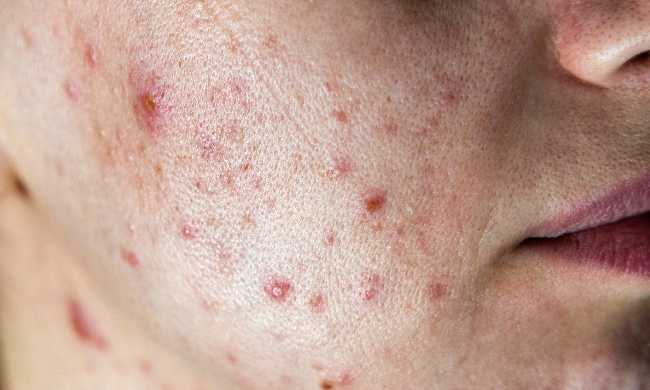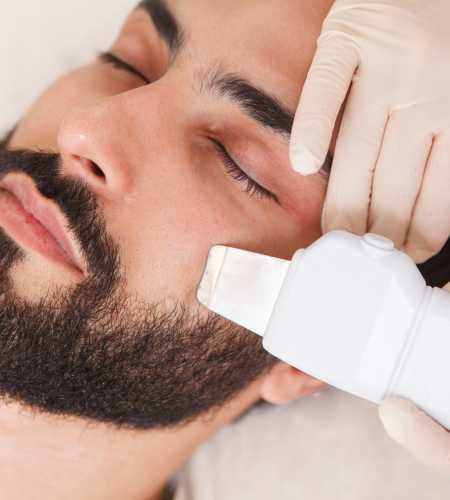Eczema
What Is Eczema? Causes, Symptoms, and Basics
Contact us to schedule your Treatment today!
Eczema, a skin condition that affects millions across the globe, is more than just an inconvenience. It has far-reaching implications, well beyond its surface impact on mental health, daily routines, and self-esteem. Despite all these trials, there is hope. With this guide in your hands and treatments available to you, living with eczema becomes possible, helping each individual to take power over their own life, as we will see in this comprehensive guide discussing eczema symptoms and available treatment options, a look into eczema treatment in India.

What is Eczema?
Eczema is also known as atopic dermatitis, a chronic skin disease that causes inflammation, itching, and redness. This condition usually starts during the first years of life but can continue into adulthood. Although its cause remains unknown, it results from both genetic and environmental factors combined. Those who suffer from allergies such as asthma or hay fever are prone to getting eczema if they have relatives with similar conditions running through their families.
Eczema Symptoms
Recognizing eczema isn’t always a simple task because of the variable nature of symptoms from person to person and their ever-changing range throughout the lifetime. Some common eczema symptoms are:
- Itchy and to a great extent it seems to get worse at night.
- Tan or reddish spots on the skin tone.
- Dry, sensitive skin
- Swelling and inflammation
- Split or scabby skin
- Oozing or crusting
A person might experience these symptoms in either face, hands, feet, or behind the knees, but they may also be distributed all over the body.

Treatment of Atopic Dermatitis
Dealing with eczema or atopic dermatitis daily does not necessarily mean living in a permanently uncomfortable state. Several eczema therapies may help reduce the impact of symptoms and contribute towards improving the quality of life of affected individuals.
Topical Corticosteroids: The creams and ointments containing anti-inflammatory ingredients help in the reduction of itching and inflammation. Alcohol-based gels are produced with different degrees of strength, ranging from the mildest variant suitable for the most delicate parts of the body (e.g. the face or genitals).
Moisturizers: The most important thing to do for eczema sufferers is that they keep their skin moisturized. Through frequently using creams and lotions
moisturizing, dryness is prevented and flare-ups are lessened.
Antihistamines: Oral antihistamines are indicated for itching, thus improving comfort and allowing one to sleep well during flare-ups.
Topical Calcineurin Inhibitors: For such areas of skin, these medications, such as tacrolimus and pimecrolimus, help to control the inflammation and are specially designed to be gentle enough.
Phototherapy: Taking the skin outside to receive a controlled amount of light either from nature or artificially also helps reduce skin irritation and itchiness.
Biologic Drugs: Severe eczema, not responding to other treatments, is treated with biologic drugs. A physician may give such medicines to patients. These drugs are directed to specific immune system pathways affected by the occurrence of eczema.
Eczema Treatment in India
India is a country that has diverse climatic conditions such as the extremes of temperature, and environmental factors which may aggravate eczema. Eczema treatment is not a problem for India as the country has an impressive number of dermatologists and clinics e.g. Eliixirskinhairclinic belonging to Dr. Shikhar Chaube which has been set up entirely to help patients with the condition. In the promotion of community-based healthcare, these professionals give the best level of patient care that not only considers their general well-being and health condition but also, their individual needs. Thus their eczema condition will be even more appropriately planned for and looked after.
Besides, using various other traditional means and Ayurveda methods, one can treat and avoid the bad eczema symptoms. Substances such as neem, turmeric, and aloe vera have had a very good long-term reputation for their anti-inflammatory action and cooling effect, which give the best natural substitutes or add-ons to the current treatments.
However, medicines only go so far. The severity and frequency of flare-ups can be managed by making certain changes in lifestyles:
Identify Triggers: Maintain a book that you use to monitor your eczema progress. For instance, this will help you notice any activities, meals, or things that may worsen your condition.
Maintain a Healthy Diet: Skin health can be supported by consuming fruits, vegetables, and omega-3 fatty acids which also reduce inflammation.
Manage Stress: It is known that stress is an eczema trigger. To keep stress levels in check practice relaxation techniques such as yoga, meditation, or deep breathing exercises.
Suitable Clothing: Cotton clothing should be chosen because it is soft and breathable; this helps reduce irritation. Tight clothes should be avoided because they make the itchiness and swelling worse.
Stay Hydrated: Water intake must be enough for the hydration of your skin from within.
Other Treatments Available
Why Choose Us?
Are you having health problems? Contact us today!
Address Business
Contact With Us
Call Us 24/7: +91 91520 10115
Working Time
Conclusion
In conclusion, Eczema is not easy to live with; however, it does not define who you are and cannot limit your abilities. Thus, those suffering from this condition should acquaint themselves with its symptoms completely consult an experienced dermatologist like Dr. Shikhar Chaube for possible treatment options, and modify their way of living as required so that they can take charge of their eczema path thus enabling them to be successful. There is support and relief available on the market in the form of traditional cures or natural alternatives whichever method one decides to go with. By helping each other pass through the puzzles about Eczema and encouraging positivism we can achieve treatments for eczema.
FAQs About The Service
What is the main cause of eczema?
How do I control my eczema?
Why Choose Us?
Are you having health problems? Contact us today!
Address Business
Contact With Us
Call Us 24/7: +91 91520 10115
